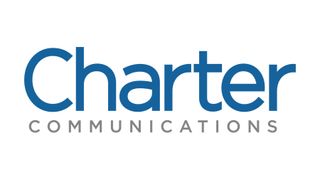Charter to FCC: Pole-Attachment Issues Threaten Universal Service
Said unreasonable terms are holding up rural buildouts

Cable broadband provider Charter told the FCC this week that discriminatory access to utility poles threatens the ability of broadband providers to close the digital divide, one of the Biden Administration's goals and one it has promised the new infrastructure bill's broadband subsidy billions will make a reality.
"Timely and non-discriminatory access to utility poles is critical to broadband providers’ ability to provide high-speed internet access to millions of unserved Americans across the country as quickly as possible, particularly those living in rural areas," Charter told staffers for FCC acting chairperson Jessica Rosenworcel and commissioner Geoffrey Starks, according to an FCC document.
Charter execs told the staffers that not getting access in reasonable timelines and terms could delay Rural Digital Opportunity Fund (RDOF) projects and other buildouts to unserved areas.
Also: FCC Issues Clarification on Pole-Attachment Cost Shifting
Charter cited the Warren Rural Electric Cooperative Corporation (WRECC) in rural Kentucky, which has said the operator had to sign a new pole attachment agreement before it will process RDOF applications, an agreement Charter says unreasonably limits its number of applications and would prevent it from meeting the FCC's RDOF build-out deadlines. In fact, it told the FCC staffers, "at the permit processing rate currently proposed by WRECC, it would take 14 years to complete the permitting process for attachments to poles to reach these locations...That means a child in kindergarten now will have graduated from high school before the permitting phase is complete."
Charter execs also cited unreasonable access conditions in Hawaii, California, and South Carolina. The cable broadband operator also said that some utility pole owners are incentivized to delay broadband deployment by cable broadband operators because they are themselves affiliated with broadband providers who are putative competitors to the attaching entities, including (in the case of WRECC) affiliates or business partners receiving RDOF support."
Charter put in a plug for FCC action on NCTA-the Internet & Television Association's 2020 petition to the FCC to deal with access disputes, including cost allocations--in unserved areas. ■
Multichannel Newsletter
The smarter way to stay on top of the multichannel video marketplace. Sign up below.
Contributing editor John Eggerton has been an editor and/or writer on media regulation, legislation and policy for over four decades, including covering the FCC, FTC, Congress, the major media trade associations, and the federal courts. In addition to Multichannel News and Broadcasting + Cable, his work has appeared in Radio World, TV Technology, TV Fax, This Week in Consumer Electronics, Variety and the Encyclopedia Britannica.

